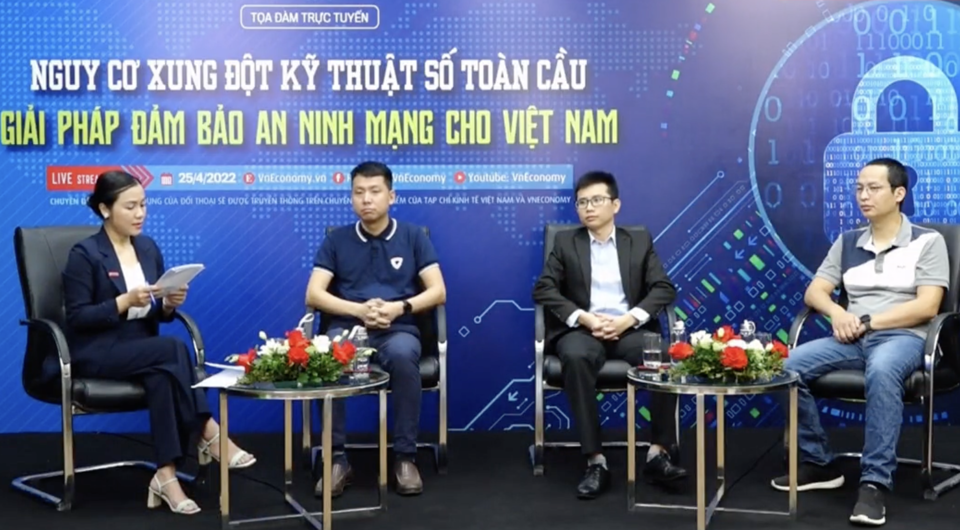Vietnam’s target of becoming cybersecurity powerhouse is feasible: Experts
Vietnam is mastering cybersecurity solutions as it can meet 90% of the domestic demand in this regard.
It is feasible for Vietnam to master core products under a completed cybersecurity system to ensure the country’s safety in cyberspace.
| Overview of the conference. |
The view was shared among experts attending a conference held on April 25, discussing solutions to protect Vietnam’s cybersecurity amid growing risks of digital conflicts in the world.
Trinh Ngoc Minh, vice chairman of the Vietnam Information Security Association - Southern Branch, noted for the country to become a cybersecurity powerhouse, it would need to address issues relating to investment capital, the number of technological products, domestically developed solutions, and qualified cyber security experts.
“Compared to five years ago, Vietnam has significantly improved its capabilities in data privacy protection,” Minh said, referring to the fact that the country was named in the top 25 out of 194 countries and territories in the Global Cybersecurity Index (GCI) in 2020.
Sharing Minh’s view, Vice Chairman of Bkav Ngo Tuan Anh said the country boasts a highly qualified IT workforce at the international level.
According to Anh, Vietnam is also among a handful of countries having IT experts in the top ranks of global cybersecurity lists.
“Many have been able to spot security loopholes in major systems of Google or trace back to the source of cyber-attacks at websites in the US or South Korea,” he added.
In addition to the growing IT sector in Vietnam, the Government has been focusing on cybersecurity by offering incentives for “Make in Vietnam” cybersecurity products.
The Ministry of Information and Communications (MIC) has proposed that 10% of the budget of any IT project should be allocated to cybersecurity.
“Vietnam is at the forefront in terms of mastering cybersecurity solutions, as the country is able to meet 90% of the domestic demand in this regard,” Anh added.
A necessity for a cybersecurity ecosystem
Despite the optimism, Chairman of Vietnam Security Network Company (VSEC) Truong Duc Luong said it would take at least five to ten years for Vietnam to become a cybersecurity powerhouse.
Luong added as cybersecurity remains a component in the IT sector, the strong growth of the entire sector would drive the development of sub-components.
“To paraphrase this, Vietnam should become a leading country in digitalization before it can be considered as a cybersecurity powerhouse,” Luong added.
He referred to examples of cybersecurity powers in the world such as Israel and Singapore, whose similarity lies in being successful in digitization.
“Such a strong foundation helped them create a complete ecosystem for cyber-security, including universities, research institutes, or venture capital,” he continued.
In Israel, the number of cybersecurity firms is 20-fold higher than in Vietnam, with the investment capital over the past three to four years estimated at over $10 billion.
“Vietnam needs such an ecosystem for long-term development. The country does not lack IT experts, but a diversified market with the participation of businesses and investors to expand the adoption of cybersecurity solutions,” he added.
Tuan Anh from Bkav also addressed the lack of regulations governing the cybersecurity market, which should set strict requirements for qualified IT firms to work on cybersecurity matters.
Anh expressed concern over the fact that there have been cases of businesses working with non-specialized IT companies in cybersecurity.
“This would only contribute to higher cyber risks and restrict the development of qualified cybersecurity companies,” he said.













